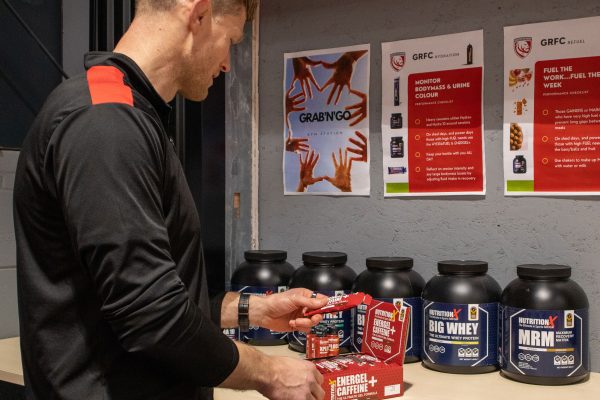Vitamin C is well known vitamin that helps to keep our immune system healthy. Of course, as an athlete, it’s ideal to be fit and healthy throughout periods of intense training and competition, and, after injury, infection is the most common reason to be presented to the team medic. Vitamin C can help to counteract this – so what exactly is this powerful little vitamin and why should athletes consider supplementing with it?
WHAT IS VITAMIN C?
Vitamin C is classed as a ‘water soluble’ vitamin alongside the B vitamins, essentially meaning that it dissolves easily in water, allowing it to be used immediately. Water soluble vitamins can be obtained in the diet through sources like fruit and vegetables. Although, somewhat unfortunately, water soluble vitamins are used relatively quickly and are not stored easily by the body, so it’s important that we consume these vitamins frequently to maintain overall health.
Vitamin C is also an important antioxidant, which means it protects cells from oxidative damage caused by free radicals. Free radicals have numerous negative effects on the human body and therefore dietary antioxidants are extremely important for both health and performance.
VITAMIN C FOR ATHLETES
For athletes, there are many timepoints where there is an increased risk of infection. Autumn and Winter, during the common cold and flu season, are obvious times that most of us are aware of when it comes to being more likely to be struck down with infection, but it’s also important to recognise that periods of increased training load - such as a training camp or competition- can put athletes at increased risk. Air travel has also been said to increase the risk of catching a cold or flu by 3-4 times, with poor sleep and hygiene also common reasons for increased risk of infection.
With the prevalence of Upper Respiratory Tract Infections amongst athletes, studies show that consuming Vitamin C three weeks before and two weeks after long distance events led to a much lower incidence of upper respiratory infection (Peters et al, 1993). As consuming enough Vitamin C will reduce the length of cold and respiratory tract infections, for athletes, this will provide more time for training and reduce absences from competition.
Vitamin C is also required for the making of collagen in the body. Collagen is an essential component of connective tissue, which plays a vital role in wound healing, and in cartilage and bones, therefore an important nutrient when recovering from injury. Vitamin C works closely with the absorption of nonheme iron, the form of iron found in plant foods. This process is important for athletes to reduce the chance of anaemia, which ultimately means a low level of vital blood cells needed to transport oxygen around the body. If an athlete is deficient in Vitamin C, common symptoms such as delayed wound healing, fatigue, weakness and aching joints may show themselves.
VITAMIN C-RICH FOODS
In order to consume enough Vitamin C, it is important to be aware of the food sources that contain it. Vitamin C-rich foods include a wide range of fruit and vegetables, in particular citrus fruits like oranges and lemons. Other examples include red bell peppers, broccoli, tomatoes, spinach and kiwis. Although Vitamin C isn’t naturally present in grains, it’s often added to some fortified breakfast cereals. Aim for a variety of fruit of vegetables to ensure you are obtaining sufficient amounts of vitamin C.
Our all-new Chewable Vitamin C tablets contain 500mg per tablet, providing you with an ideal amount to kickstart the day when consumed at breakfast; helping to support your immune system.








